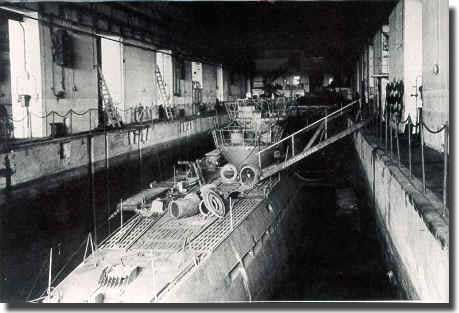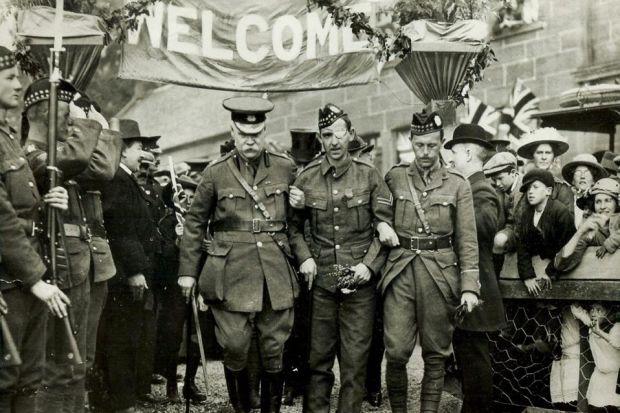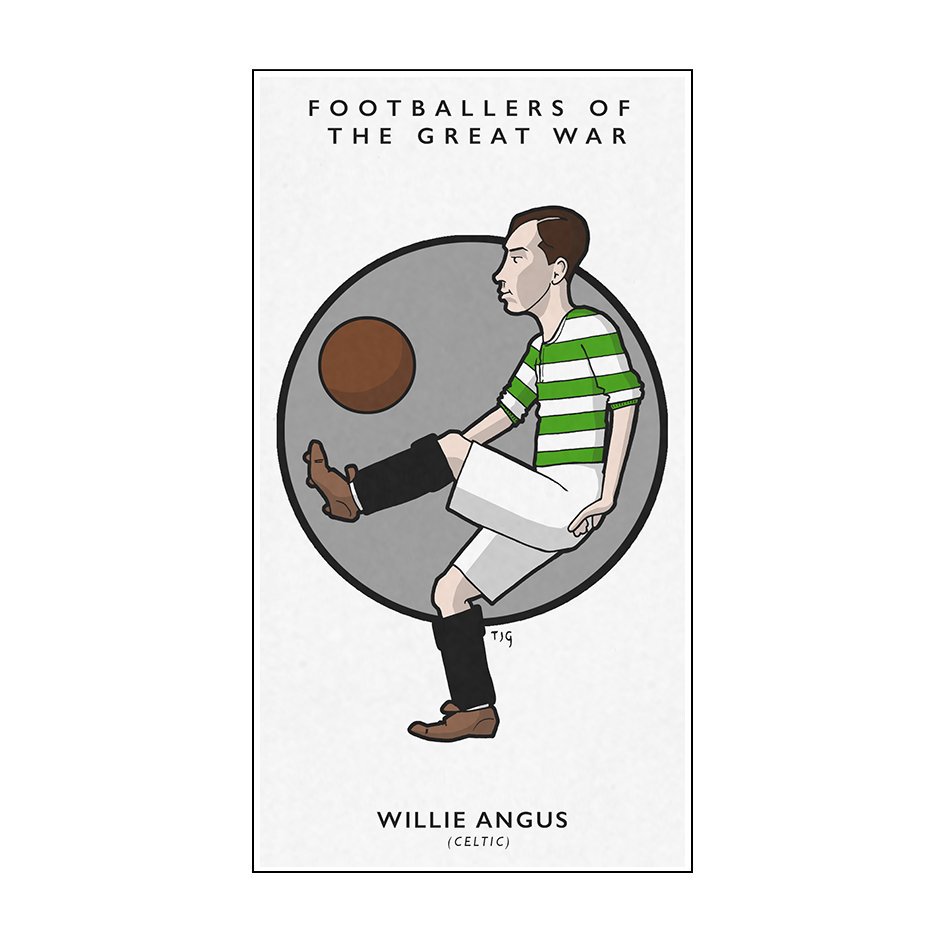Each year I always make an effort to wear a poppy, like many others for personal reasons. Luckily I have never had to witness the horror of war at first hand or lose a family member or friend, a person who left only never to return.
What has happened over recent years where various organisations and people have simply high jacked and ‘glamorised’ the notion that War is a Hollywood production for some to prove their Britishness is wrong, plain and simple.
In 1943 my Great-grand-parents received the news any parent dreads during such a time, your son has been killed in action. Just 6 weeks later the same horror news arrived again, another son was dead.

James and Bernard Martin had both served in the RAF and been involved in similar missions, which I understand where against the German U-Boat base in Brittany, France. My Mum has told me it nearly destroyed my Great-Grandmother and she stayed in her room for nearly 6 months grieving for the two sons who would never come home.
At the back of my Church is a list of nearly 100 men who died during WW1, only names to me but fathers, sons, brothers, friends to so many others.
When a bullet or bomb is fired it doesn’t ask what religion or football team you support, you are simply the enemy until the madness stops and the sound of the last bullet has been fired or shell been dropped.

I don’t know if it’s widely known but a young man that Celtic signed in 1911 called Willie Angus was awarded the Victoria Cross on 12 June 1915 for his bravery. He lost an eye and was wounded at least 40 times.

The final thing to remember is a saying I heard years ago ‘Politicians start wars but ordinary people have to fight and die in them’.
Written by Garibaldi

WILLE ANGUS – THE FORMER CELTIC PLAYER RECEIVED THE VC FOR REMARKABLE COURAGE DURING THE GREAT WAR
Celtic’s Willie Angus gained worldwide recognition for his actions on the battlefields of France during the so-called Great War. The Celtic player cheated death to save the life of a wounded friend and comrade and became the first Scottish Territorial Army soldier to be awarded the Victoria Cross.
Willie was born in Armadale, West Lothian, but his family later moved to Carluke in Lanarkshire where he lived for the rest of his life. Willie started out as a coal-miner but was able to escape the pits through his outstanding ability as a footballer.
Gordon Thomson, writing in Glasgow Times picks up the story of Celtic war hero Wille Angus…
He was captain of Wishaw Thistle but left the junior team to sign for Celtic in 1912. But he had only made one first team appearance when war broke out two years later.
Willie decided to enlist in the army after Sergeant Major George Caven of the Highland Light Infantry held a recruitment drive in Carluke. Another local lad, James Martin, also decided to volunteer.
Both were sent to a training camp at Dunoon after joining the Territorial Battalion of the Highland Light Infantry. They completed their training only to discover there would be a delay before both would see action against the Germans.
That didn’t please either of them so they volunteered to be attached to the 8th Royal Scots, who were due to head to the Western Front within days. It wasn’t long before they experienced the horrors of trench warfare on the blood-soaked battlefields of France.
The two were separated when Willie suffered bullet wounds and had to be treated in a base hospital. Their reunion weeks later would be stranger than fiction and make headlines around the world.
Lance Corporal Willie Angus was sent back to the front where D Company of the 8th Royal Scots was encamped in a trench on the outskirts of Givenchy La Basse, a village in northern France. Just 70 yards separated him from the enemy.
For weeks the Germans had been pushed back and were dug in on a small embankment known as Point 14 which overlooked No Man’s Land. It was the summer of 1915 and commanders decided to send a small bombing party to attack the German position in the dead of night. Their orders were to try to cause confusion in the hope that Point 14 could be stormed and taken.
Instead the Germans scuppered the attempt by detonating a large mine which had been buried underground. The blast created a 15 feet wide crater and forced the Scots party to retreat to their trenches.
But Lieutenant James Martin was discovered missing. When dawn came he was spotted lying motionless on the embankment close to enemy machine guns. Later he stirred and was close to the Germans he pleaded to them for a drink of water.
Instead an enemy soldier throw a hand grenade at him. Watching British troops were outraged. Word got to Willie Angus who immediately volunteer to mount a rescue. Senior officers refused.
Eventually he was allowed to proceed but warned he faced almost certain death. Willie replied it didn’t matter since death would come to him “now or later”.
A rope was died around his waste so that he could be dragged back if killed or seriously wounded. But the footballer turned soldier reached James Martin without being spotted by the enemy after crawling along the ground.
The first thing he then did was remove the rope and tie round Martin. Willie then sat his pal up and gave him a sip of brandy. Minutes later Willie raised Martin to his feet and, through a hail of German bullets and hand grenades, began carrying him across No Man’s Land in a desperate bid to reach the safety of the British trenches.
Time and again Willie slumped to the ground wounded. Time and again he got to his feet again to continue his death defying rescue.
Dust clouds created by the bombs made it difficult for the German snipers but shrapnel from the grenades caused several injuries to Willie, who shielded Martin. Watching British troops eventually pulled Martin to safety while his bravest of friends headed further down the trench to draw the German fire.
Incredibly Willie reached safety but he had sustained at least 40 separate injuries and medics were unable to save his left eye and had to remove part of his right foot. Lieutenant Colonel James Dunlop Gemmill, his commanding officer later wrote: “No braver deed was every done in the history of the British Army.”
Willie was presented with the Victoria Cross at Buckingham Palace by King George V on August 30, 1915. The King spoke at length to him and even insisted Willie’s father, who was waiting in a palace ante-room join them in the main hall to witness the medal ceremony.
Celtic club secretary William Maley wrote a personal letter to the soldier’s proud dad.
He wrote: “I beg to offer you, on behalf of my club, and personally, our sincerest congratulations on the brilliant achievement of your son, Willie.“That he may come back to you all safe and sound is now our most earnest prayer, and we trust that you may all be long spared to each other to happy and prosperous days.
“I can safely say that no club ever had a more willing or conscientious player, and one who always showed by his cleanness that fine spirit which has in his army life enabled him to do the deed which has earned him a world’s acclamation.”
The former Celtic midfielder was given a hero’s welcome when he returned to Carluke. Celtic and Rangers were playing home games in the semi finals of the Glasgow Cup and both sets of fans applauded his bravery.
Willie was repeatedly invited to major football matches and given the VIP treatment. He became president of Carluke Rovers and held that position until his death on June 14, 1959.
But his memory lives on. A local street in Carluke, Angus Road, carries his name to this day.









